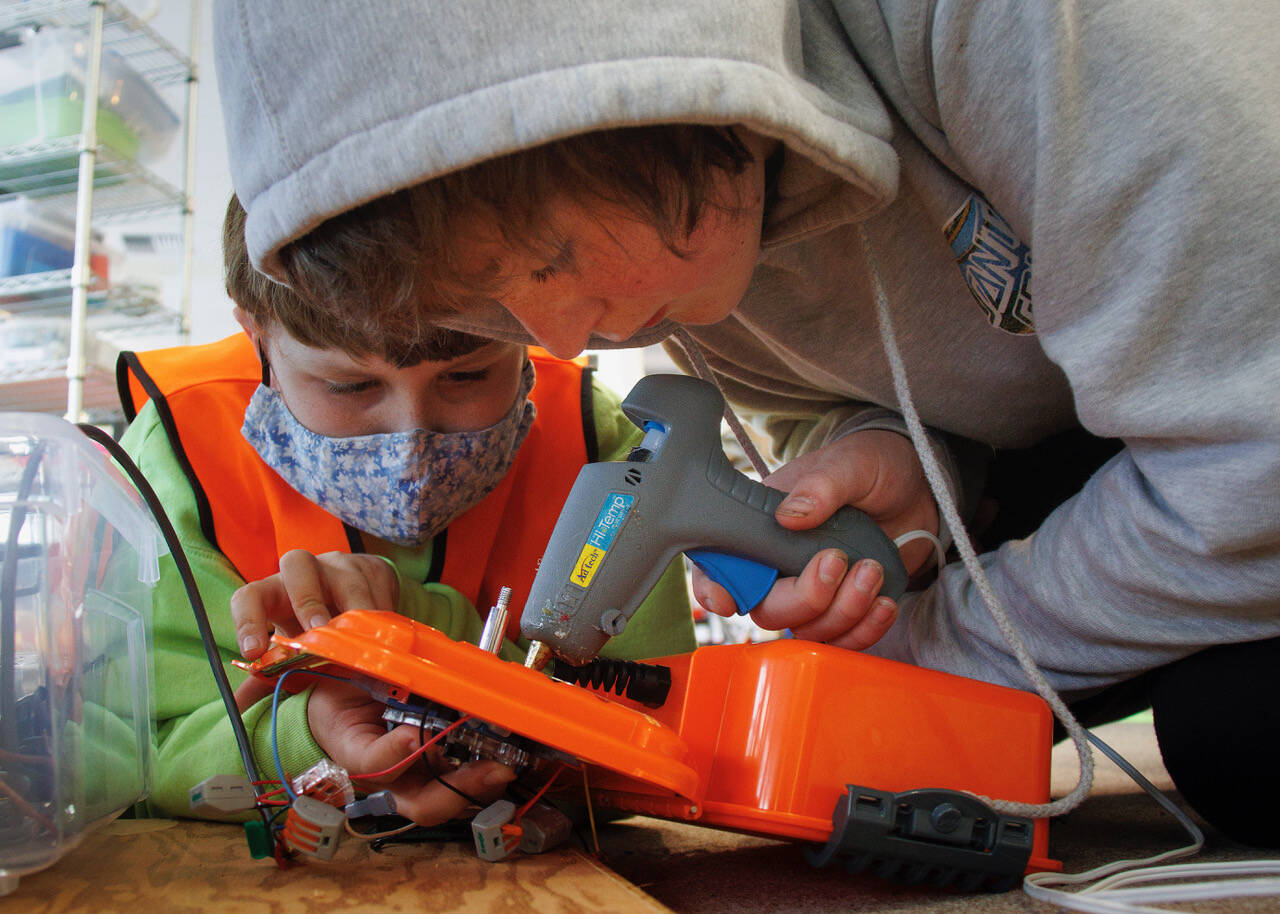This summer, underwater robotics classes are joining a small parks and rec district with a large assortment of opportunities for programming that are simultaneously fun and educational.
The South Whidbey Parks and Recreation District is offering a variety of programs over the summer, from camps focusing on music, magic, nature or sports to swim lessons to a model rocket workshop. Underwater robotics is the newest option.
Skye Dunn, the recreation supervisor for the parks and rec district, said swim lessons tend to be most popular among the kiddos since instruction is limited on the South End.
Adults can also participate in programs that are appealing to them, such as open water swimming, sailing lessons, yoga in the park, or most popular, pickleball.
“Everybody has a different form of recreation that works for them, and we want to be able to blanket as many of them as possible,” Dunn said.
He added that the parks and rec district is always open to new ideas that people may want to suggest.
Depending on the program, costs can range from $50 to $330, but there are also some low-cost alternatives. Concerts in the park are free, for example, and so is a drop-in 3-on-3 basketball game on Tuesdays for ages 40 and over.
Dunn believes this may be the first summer that parents are seeing “the light at the end of the tunnel” and feeling most comfortable since the pandemic started. Some programs, like the daytime camps for kids, take up multiple hours of the day.
“I think for a lot of parents, there’s a mix of getting some enrichment for your child during the summertime and getting them active and outdoors, but there’s also the flip side of the coin,” he said. “Affordable childcare can be tough on the South End of the island. Parents can look at these as vetted activities their child can go to.”
For a full list of classes, visit swparks.org/events/list.
Perhaps one of the most unique offerings this summer are the underwater robotics classes, led by Ash Bystrom of Atlantis STEAM, a nonprofit club for students.
Beginning classes teach kids about marine technology and science and how to solder and build electrical switches. Intermediate classes, held later in the summer, focus on manipulators, waterproof cameras, joystick controllers and other new skills. Students will test their new tools on a practice ROV, or remotely operated vehicle, by attempting to complete tasks underwater.
Other classes focus solely on building underwater robots, including one for teachers and mentors to learn about how to teach some of the skills relayed in the class. An ages 18 and up class titled “Have Fun with Tools and Robots” allows adults to experiment with power tools and learn how to solder.
Bystrom has been at the helm of Atlantis STEAM since the club’s inception. A team began competing in underwater robotics during the 2009-2010 school year. Outreach and classes started in 2013, and the club received its nonprofit status in 2019.
“I’m a nerd and a geek,” Bystrom said. “My dad was an architect, but I really am the person who got a BA in theater while taking calculus first thing in the morning to start the day off right.”
Something that is close to her heart is the inclusion of women and those in the LGBTQ+ community when it comes to science, technology, engineering and mathematics.
In the past, a team of students from the club have competed on an international level. Unlike other competitions that are game-based, these contests were based on real-world science. The kids’ bots completed the types of tasks actual ROVs are doing in the world, such as mitigating pollution or testing water.
Kids in the club have also worked with scientists from NASA to help design a bot, as part of a competition, that could go down through the ice on Europa, a moon of Jupiter.
“This is fun. You’re just building things,” Bystrom said. “If my brain can figure it out, then I can figure out how to teach it in a way that other people can figure out. I can break it down in a simplified enough way that it’s understandable. The best thing is kids, and seeing them get it and knowing that even if they don’t do this, they will still understand so much about their world.”
During the height of the pandemic, the club shifted its focus and started manufacturing PPE, or personal protective equipment, for healthcare workers.
Although students in the club haven’t competed in a few years, Bystrom is hoping to rebuild the team. The group has a new space in a Clinton strip mall, where they meet regularly to work on bots which are “flown” in a 700-gallon tub of water.
“We’re feeling really good about where we are now, in terms of being able to have a space where kids can really come and do stuff and then expand and do really fun things for older members of our community,” Bystrom said.
On a recent Tuesday afternoon, a group of boys tested out flying an ROV that was built by other members of the club.
“I like robotics because it’s a good chance to learn about robots and how to actually build them, rather than just watching a show of someone going underwater with a big robot,” said 12-year-old Caleb Arndt. “You actually get to use them and build one of your own, essentially.”
Bystrom said the club welcomes all support — volunteers, financial donations or materials — as it rebuilds after the pandemic.
If people are interested in making donations to the club or learning more about it, email atlantissteam@gmail.com.
“It’s really cool that this whole program has been built on community support over the years,” Bystrom said. “We’re still here, and we’re still giving back.”



